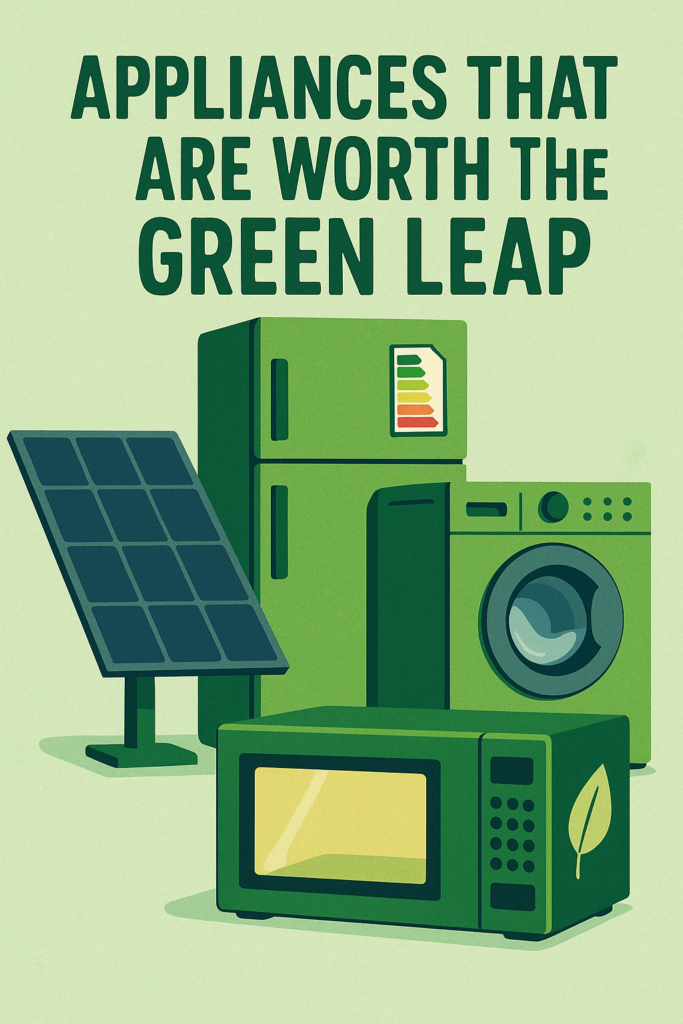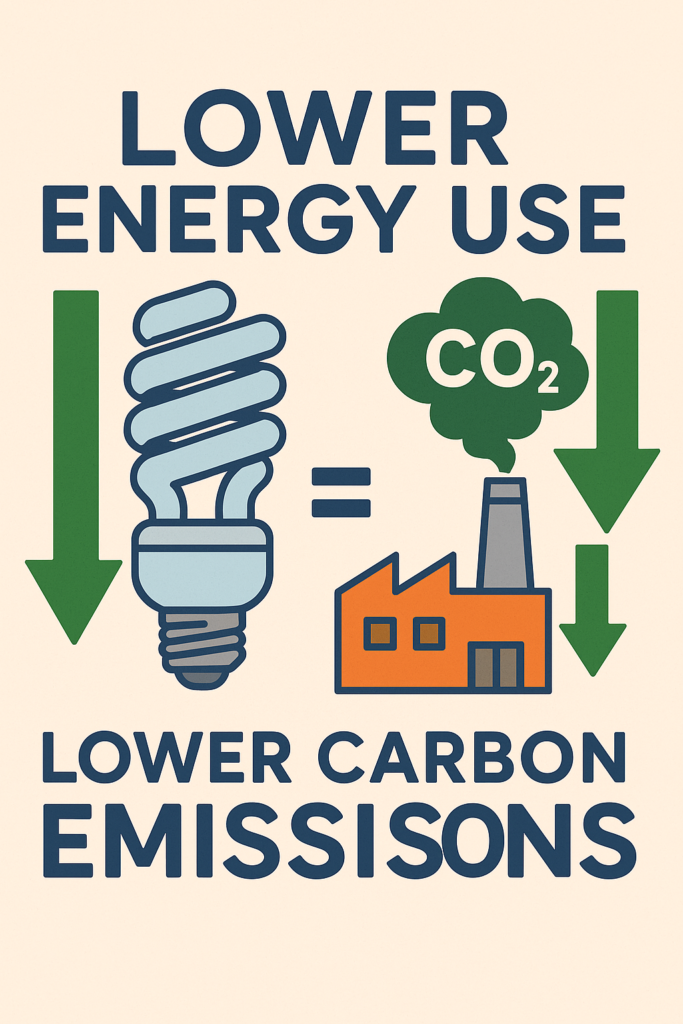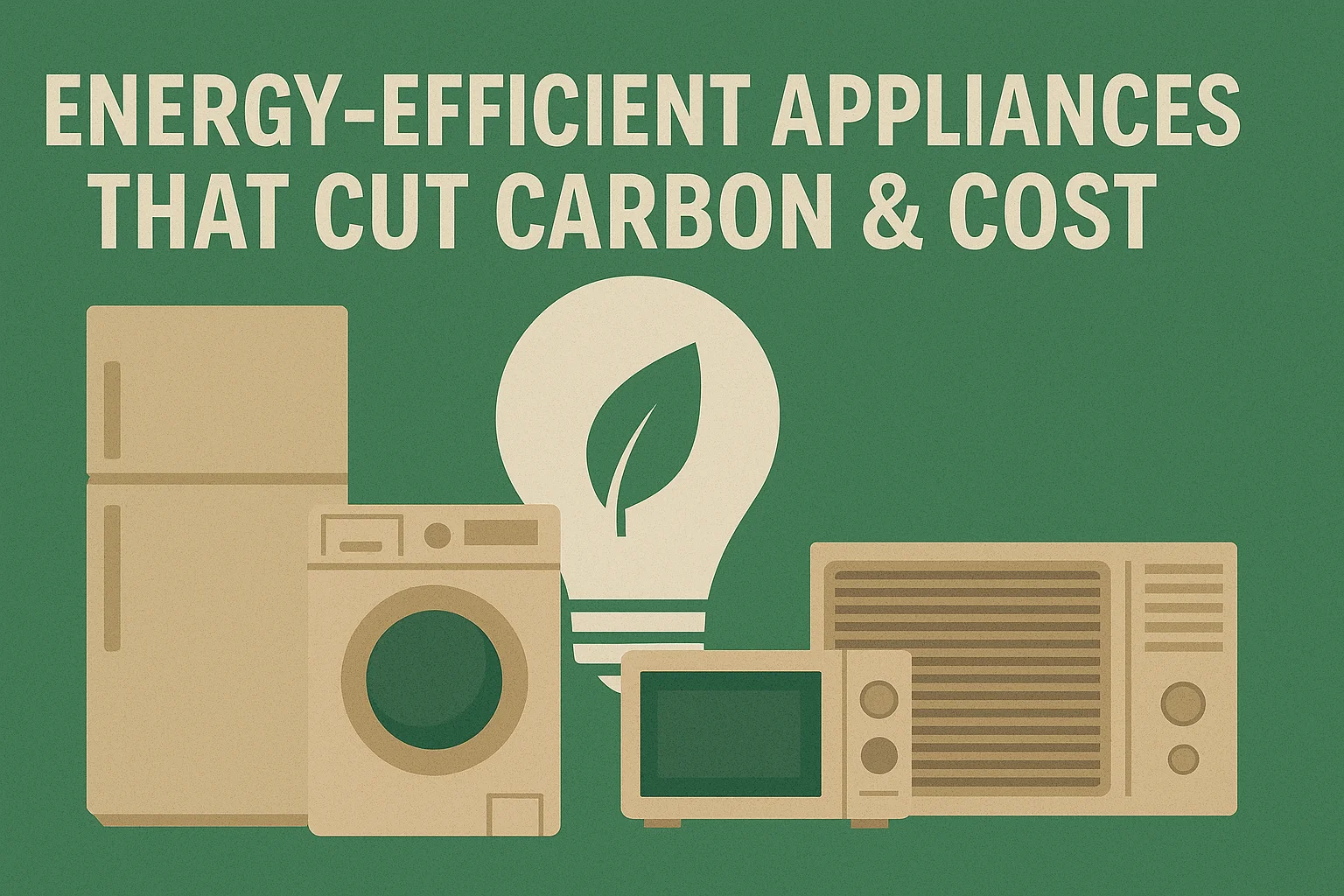Imagine slashing your monthly utility bill while helping the planet breathe a little easier. Sounds like a dream? It’s not. Welcome to the smart world of energy-efficient appliances—devices built not only to power your daily life but to do it cleaner, faster, and cheaper.
In this exclusive guide powered by insights from ecogearguides, we’ll uncover the smartest appliances that dramatically reduce both your carbon emissions and household expenses.
Why Energy Efficiency Is a Smart Life Upgrade
Energy-efficient appliances are no longer luxury items—they’re essential upgrades. They’re like switching from a gas-guzzling SUV to a sleek electric car. Same function, way less fuel.
With global electricity demand climbing and fossil fuels nearing critical limits, every kilowatt saved is a silent protest against environmental collapse. The bonus? Your utility bills start behaving themselves.
That’s why experts at ecogearguides have emphasized that energy-efficient living is not a compromise—it’s an improvement.
Appliances That Are Worth the Green Leap

Let’s break down the real MVPs in your home that can cut costs and carbon without cutting performance.
Refrigeration Reinvented
That humming box in your kitchen runs non-stop. An old fridge is like a leaky wallet, bleeding energy day and night. The new generation of fridges comes equipped with:
- Digital Inverter Compressors
- Adaptive Defrosting
- Smart Temperature Sensors
Fun Fact: ENERGY STAR®-certified fridges use less energy than a 60-watt bulb running all year.
Want a brand that doesn’t greenwash? ecogearguides lists verified models with real-world savings based on annual kWh usage—not just brochure fluff.
Laundry That Loves the Planet
Washing machines have gone from clunky water-wasters to sleek, water-saving marvels. Front-loaders, in particular, are the Tesla of laundry:
- 50% less water per cycle
- 30% less detergent
- Automatic fabric sensors
Most importantly, they slash drying time because of their high-spin speeds. That’s a double win for energy savings.
Bonus: Pair with an energy-efficient dryer using heat-pump technology, and you’re looking at up to 60% total energy reduction in your laundry routine.
Dishwashing Without the Guilt
Say goodbye to washing dishes by hand—it’s actually less efficient!
Modern dishwashers now feature:
- Soil sensors that adjust wash time
- Eco modes that reduce water heat
- Half-load functions for smaller families
New models can complete a full cycle with under 4 gallons of water—that’s less than most people use rinsing by hand for 10 minutes!
Climate Control That Doesn’t Cost the Earth
Old AC units are dinosaurs. Modern inverter-based air conditioners are thermodynamic wizards—smart, silent, and stingy with your power.
Features to look for:
- SEER ratings above 18
- Zonal cooling (cool only rooms in use)
- Wi-Fi & app control for optimal scheduling
Even better? Some ACs now function as dual-purpose heating units, reducing your winter bills, too.
Lighting the Way—Intelligently
Replacing just 10 incandescent bulbs with smart LEDs can cut lighting energy costs by 80%.
Smart bulbs offer:
- Scheduled automation
- Motion sensing
- Adjustable brightness and color
With smart lighting, your home adapts to your lifestyle—not the other way around.
Why Efficiency Equals Savings
Let’s talk numbers. The upfront cost of efficient appliances may be higher, but over time, they pay for themselves—and then some.
For example:
- A smart fridge can save PKR 15,000–20,000 annually.
- An energy-efficient AC could lower your summer bill by 30–40%.
- Using eco-mode on a dishwasher saves up to 3,000 liters of water yearly.
Plus, with guidance from ecogearguides, you can calculate true cost-to-benefit ratios based on your usage patterns and energy rates.
How Lower Energy Use = Lower Carbon Emissions

Every appliance powered by electricity contributes to the grid’s demand. And when that grid is fueled by fossil sources like coal or gas, every extra kilowatt means extra CO₂ emissions.
Efficient appliances:
- Use smarter heating/cooling algorithms
- Run for shorter periods
- Require fewer raw materials to operate
Think of it this way: Replacing your old AC with an inverter unit could offset the carbon emitted by one domestic flight per year.
Read More : How Energy-Efficient Devices Save Your Bills and the Planet
How to Spot Appliances That Truly Save Energy
The market is noisy. Labels shout “eco” but don’t always mean it. Here’s how to make smart, hype-free choices:
Know Your Certifications
- ENERGY STAR® (U.S.): Globally recognized symbol of real savings
- European Energy Label (EU): A+++ is the gold standard
- NEEP Tier Ratings (Emerging Asia): For regional clarity
Read Beyond Specs
Specs only tell half the story. Visit trusted comparison sources like ecogearguides, where appliances are tested in real homes, with performance tracked over months—not hours.
Check Compatibility With Smart Systems
An efficient appliance is even better when it’s smart-home compatible. Timers, learning algorithms, and remote operation ensure your device works only when needed, not all the time.
Read More : Best Reusable Kitchen Items for a Greener Home
Conclusion
Modern life doesn’t have to come at the environment’s expense. With the right energy-efficient appliances, your home becomes a force of both comfort and conservation. You’ll save money, reduce emissions, and embrace tech that makes life simpler—not harder.
Thanks to expert-backed platforms like ecogearguides, finding truly efficient products isn’t a guessing game. It’s a data-driven decision with measurable impact.
So next time you hear your old fridge humming—ask yourself: is it saving you or costing you?
FAQs
Are energy-efficient appliances really better in hot climates?
Yes. Inverters in air conditioners and fridges adapt to temperature fluctuations, making them perfect for extreme summer conditions in places like Pakistan, UAE, and India.
I live alone. Is switching worth it?
Absolutely. Efficient appliances scale with usage. You’ll still benefit from lower operating costs and reduced wear, especially with smaller cycles or half-load options.
Can I get rebates for buying energy-efficient devices?
In some areas, yes. Utilities and even federal programs offer rebates for products meeting certain energy standards. Check local listings or browse ecogearguides’ rebate tracker tool.
How do I recycle my old appliances responsibly?
Look for manufacturer buy-back or retailer take-back programs. Never dump appliances; they contain toxic materials. Cities often host eco-disposal days for electronics and white goods.
Which brand is the most efficient?
Efficiency varies by category. ecogearguides maintains updated rankings based on real-world testing. Brands like LG, Bosch, and Haier consistently perform well—but always verify the specific model’s rating.


